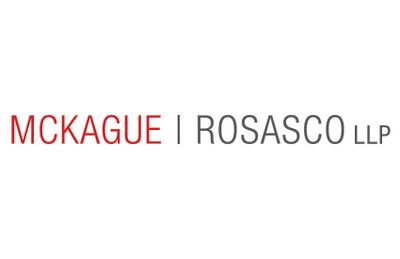California Expands Scope of Supplemental Paid Sick Leave for COVID-19 Related Absences
March 23, 2021
On March 19, 2021, Governor Newsom signed Senate Bill 95 (“SB 95”), which expands the scope of supplemental paid sick leave for covered absences related to COVID-19. Although SB 95 gives employers a 10-day grace period to start providing the leave, the law applies retroactively to January 1, 2021 so covered employers may need to issue payments to employees who took qualifying absences in the past. Unless extended, the law will expire on September 30, 2021.
SB 95 differs from previous state supplemental leave laws in two notable ways. First, although California’s previous COVID-19 supplemental paid sick leave statute applied only to employers with 500 or more employees, SB 95 defines the term “covered employer” to include any employer who employs more than 25 employees. Second, in addition to requiring employers to provide paid sick leave for COVID-19 related illnesses, SB 95 allows covered employees to take supplemental paid sick leave if they are unable to work or telework, due to any of the following reasons:
- The employee is subject to a quarantine or isolation period related to COVID-19 as defined by an order or guidelines of the California Department of Public Health, the U.S. Centers for Disease Control and Prevention, or a local health officer who has jurisdiction over the workplace;
- The employee has been advised by a health care provider to self-quarantine due to concerns related to COVID-19;
- The employee is attending an appointment to receive a COVID-19 vaccine;
- The employee is experiencing symptoms related to a COVID-19 vaccine that prevent the employee from being able to work or telework;
- The employee is experiencing symptoms of COVID-19 and seeking a medical diagnosis;
- The employee is caring for a family member who is subject to a quarantine order or has been advised by a health care provider to self-quarantine due to concerns related to COVID-19; or
- The employee is caring for a child whose school or place of care is closed or otherwise unavailable for reasons related to COVID-19 on the premises.
As with the previous supplemental paid sick leave law, full-time employees are entitled to up to a maximum of 80 hours of paid leave. Part-time employees are entitled to the number of hours they are regularly scheduled to work over a two week period. Part-time employees who work a variable schedule are entitled to 14 times the average number of hours worked each day in the preceding six months, or during the period the employee has worked for the employer. Employees who have worked less than 14 days are entitled to receive the total number of hours they have worked for the employer.
Note that the amount of leave an employee is entitled to is limited by the number of hours that are actually required based on the reason for the leave. In other words, an employee who is unable to work for two hours in order to receive a COVID-19 vaccine is only entitled to two hours of supplemental paid sick leave, not the maximum permitted by law.
Under SB 95, employers must notify employees of their eligibility for supplemental paid sick leave. The Labor Commissioner’s Office recently published a model notice for employers to use, which is available at https://www.dir.ca.gov/dlse/2021-COVID-19-Supplemental-Paid-Sick-Leave.pdf. In addition, all employers must also include COVID-19 supplemental paid sick leave as a separate line item on employees’ wage statements or in a separate writing provided on the designated pay date with the employees’ wages. Previously, food sector worker (including agricultural employers) were excluded from the pay statement requirement.
Additional information regarding employer obligations under SB 95 is available at https://www.dir.ca.gov/dlse/COVID19Resources/FAQ-for-SPSL-2021.html
California’s enactment of SB 95 comes on the heels of the federal American Rescue Plan Act of 2021, which was enacted on March 11, 2021. As McKague Rosasco LLP reported on March 17, 2021, the American Rescue Plan Act will, among other things, extend federal tax credits for paid sick leave that were previously provided by the Families First Coronavirus Response Act (FFCRA), which expired on December 31, 2021, and the Consolidated Appropriations Act, which will expire on March 31, 2021. In addition to the qualifying reasons provided under SB 95, the American Rescue Plan Act includes employees who are unable to work or telework while seeking or awaiting the results of a COVID-19 test requested by their employer. Tax credits provided under the American Rescue Plan Act will begin on April 1, 2021 and end on September 30, 2021, unless otherwise extended.
Ultimately, the overlay of California’s SB 95 and the federal American Rescue Plan Act provide benefits and create obligations based on an employer’s size. Employers with less than 25 employees are not required to provide supplemental paid sick leave under SB 95, but those who do are entitled to a credit against applicable employment taxes for each quarter, in an amount equal to 100 percent of the qualified sick leave wages paid during the quarter. Employers with between 25 and 500 employees are required to provide supplemental paid sick leave under SB 95 and are entitled to federal tax credits for such. Finally, employers with more than 500 employers must provide supplemental paid sick leave under SB 95 but are not entitled to tax credits under the federal American Rescue Plan Act.
It is important for employers to understand the impacts of SB 95 and the American Rescue Plan Act. Contact the attorneys at McKague Rosasco LLP if you have questions regarding your supplemental paid sick leave obligations.
Disclaimer: The information provided on this website does not, and is not intended to, constitute legal advice; instead, all information, content, and materials available on this site are for general information purpose only. Information on this website may not constitute the most up-to-date legal or other information. You should always consult an experienced attorney if you have any questions about your business, policies, or your particular circumstances.

